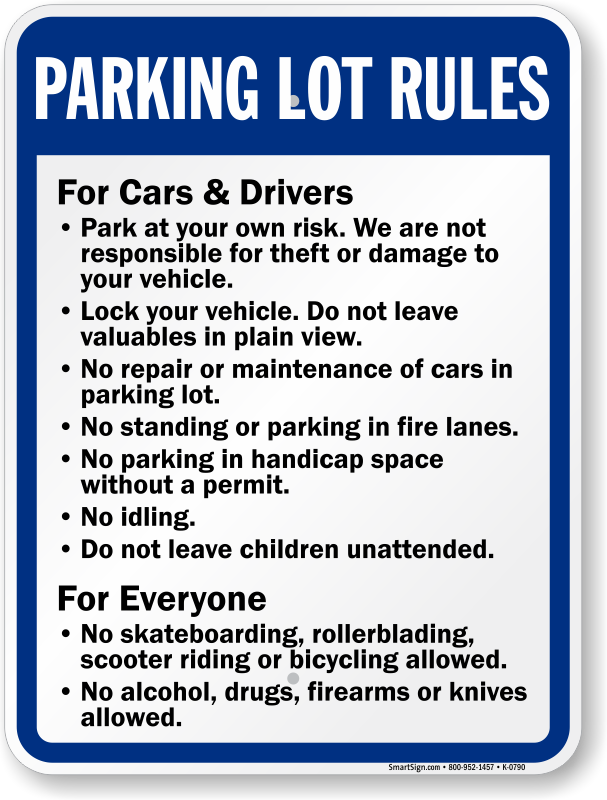Navigating the world of parking can be confusing, especially when trying to decipher the rules governing public vs. private parking lots. Understanding the difference between these two types of parking spaces is crucial for avoiding fines, towing, and potential legal issues. This article will delve into the distinct characteristics of public and private parking lots, outlining the regulations, enforcement practices, and liabilities associated with each.
By the end of this guide, you’ll have a clear understanding of your rights and responsibilities when parking in both public and private spaces.
Public Parking Lots
Public parking lots are owned and managed by government entities, such as cities, counties, or state agencies. These lots are typically designed to provide convenient parking for the general public, often in high-traffic areas like shopping districts, downtown cores, or near public transportation hubs.
Free vs. Metered Parking
One of the defining features of public parking lots is the availability of free or metered parking. While some public lots offer free parking, many require payment through parking meters. Metered parking typically operates on a time-based system, with rates varying depending on the location and duration of parking.
Local Ordinances
Parking regulations in public lots are governed by local ordinances, which dictate parking time limits, permitted parking hours, and any specific restrictions. These ordinances are designed to ensure efficient traffic flow, prevent congestion, and promote fair access to parking spaces.
Enforcement Practices
Public parking lots are typically patrolled by parking enforcement officers who issue citations for violations of local parking ordinances. These violations can include exceeding time limits, parking in restricted zones, or failing to pay parking fees.
Private Parking Lots

Is a parking lot private property? The answer is often yes. Private parking lots are owned and operated by individuals or businesses, such as shopping malls, office buildings, or apartment complexes. These lots are typically intended for the exclusive use of customers, tenants, or employees of the property owner.
Payment and Access
Private parking lots often require payment for parking, either through a parking kiosk, an automated system, or a designated attendant. Access to private parking lots may also be restricted through gates, barriers, or security personnel.
Private Rules and Regulations
Private parking lot owners have the right to establish their own rules and regulations governing parking within their property. These rules may include restrictions on parking duration, vehicle types, or specific parking zones.
Signage and Notice
Private parking lot owners are required to clearly display signage indicating the rules and regulations governing parking on their property. This signage should be prominently placed and easily visible to drivers entering the lot.
Parking Regulations
Parking regulations encompass a wide range of rules and guidelines designed to ensure safe, orderly, and efficient parking practices. These regulations vary depending on whether the parking lot is public or private.
Time Limits
Both public and private parking lots often impose time limits on parking duration. These limits are designed to prevent vehicles from occupying spaces for extended periods, ensuring availability for other users.
Parking Zones
Parking lots may be divided into designated zones with specific parking restrictions. For example, some zones may be reserved for handicapped parking, loading zones, or specific customer groups.
Parking Permits
Some parking lots, particularly private ones, may require parking permits for authorized users. These permits typically identify the vehicle and the individual or entity permitted to park in the designated area.
Parking Enforcement

Parking enforcement is responsible for monitoring parking regulations and issuing citations for violations. In public parking lots, this is typically handled by designated parking enforcement officers employed by the local government.
Citations and Fines
Parking violations in both public and private lots can result in citations and fines. The amount of the fine varies depending on the severity of the violation and the jurisdiction.
Towing
In some cases, vehicles parked in violation of parking regulations may be towed away. This is more common in private parking lots, where the property owner has the right to remove vehicles that violate their rules.
Liabilities
Understanding the liabilities associated with parking in both public and private lots is crucial for drivers.
Public Parking Lots
In public parking lots, the government entity responsible for the lot typically assumes liability for any accidents or injuries that occur on the property. However, drivers are still responsible for their own actions and may be held liable for damages if they cause an accident due to negligence.
Private Parking Lots
Private parking lot owners generally have a higher level of liability for accidents or injuries that occur on their property. They are responsible for maintaining the lot in a safe condition and ensuring that parking regulations are clearly communicated to drivers.
Conclusion
Navigating the complexities of parking regulations requires a clear understanding of the distinctions between public and private parking lots. By familiarizing yourself with the rules and regulations governing each type of lot, you can avoid fines, towing, and potential liabilities. Remember to always pay attention to signage, respect time limits, and park responsibly to ensure a smooth and legal parking experience.



